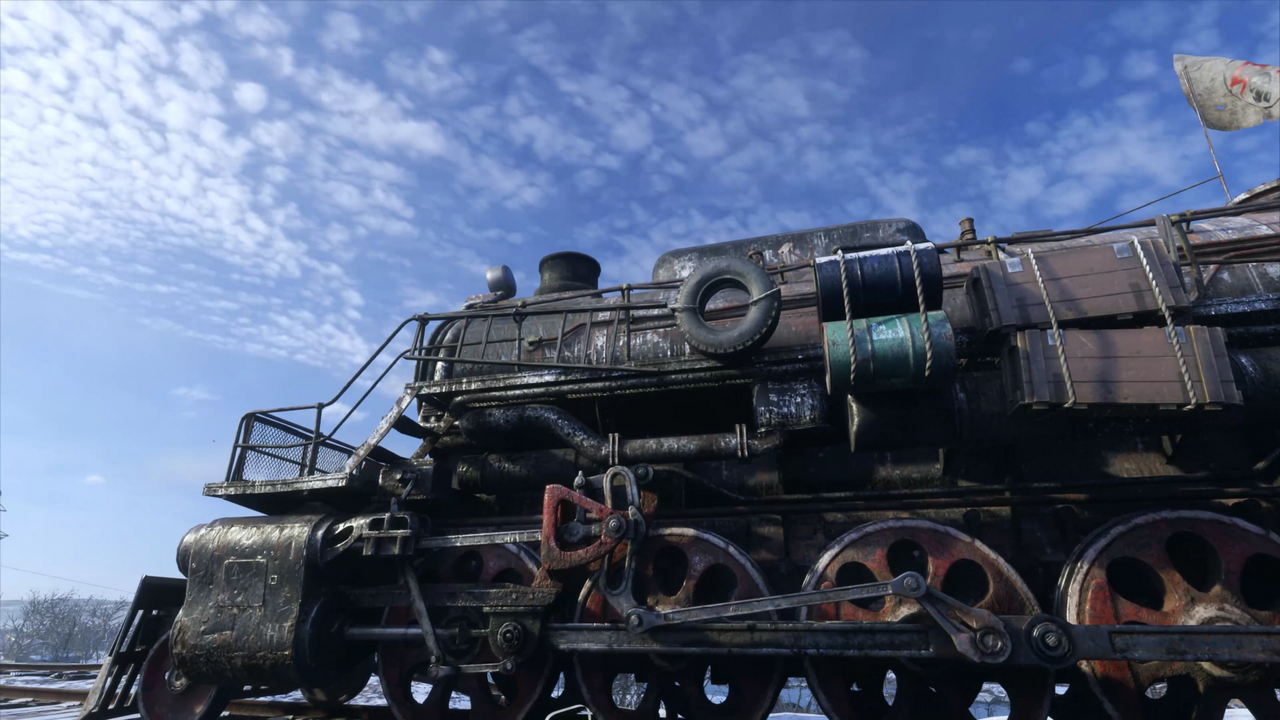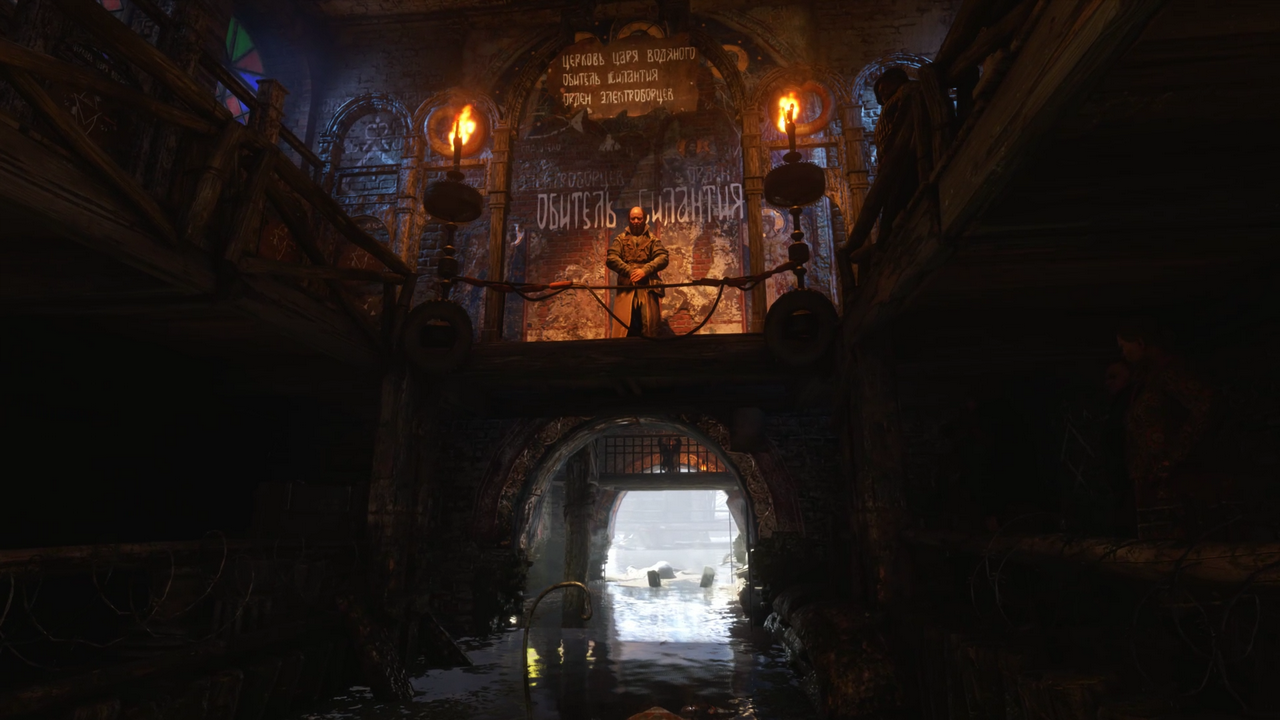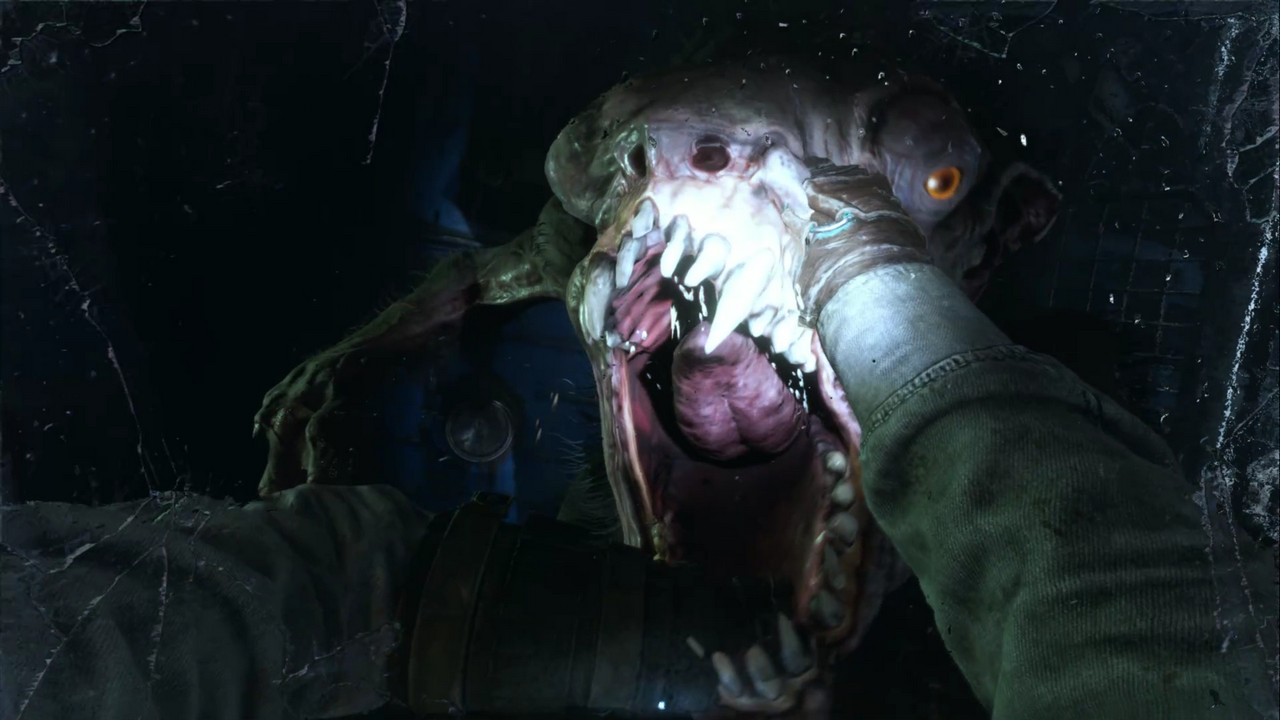The Metro series spent the majority of the first its first two entries, Metro 2033 and Metro Last Light, in the cramped subway tunnels of Moscow, Russia. In Metro Exodus, Artyom and the gang are making their way to the surface in an adventure that spans the breadth of post-apocalyptic Russia.
Though the subject matter is overrepresented in modern media, Metro has managed to put its unique spin on it with its story of human survival within the subway stations of Moscow. I feared that the franchise would lose its punch by going above ground, but after completing Metro Exodus, it’s obvious that was the only direction the story could go and add a new veneer of freshness.
At its core, though, Metro Exodus is still very much a Metro game, and the sense of foreboding and claustrophobia is still here in spades. Artyom somehow continually finds himself in dank, rotting, dark places that he can barely wiggle through.
Review PC Specs
- CPU: Intel Core i7-8086K o/c to 5.1 GHz
- GPU: NVIDIA GeForce RTX 2080 Ti Founders Edition 11GB GDDR6
- RAM: Ballistix Sport LT 32 GB (16GBx2) DDR4 2666
- Motherboard: ASUS TUF Z370 Pro Gaming
Metro Exodus Review | Heirs of a cold war
Metro Exodus continues the story of Artyom, a Ranger of the SPARTA Order. By this point, he’s become an elite soldier and is well respected throughout the Metro. However, Artyom isn’t satisfied with life underground. He theorizes that humanity has survived in other regions than Moscow alone and after detecting a radio signal he begins frantically combing the surface above the Metro trying to pick it up again.
Artyom’s search leads to him and his wife Anna becoming aware of a conspiracy by the leaders of their faction, the Hanseatic League, to keep Moscow in a communications blackout with a series of powerful jammers. After this discovery, Artyom, Anna, Anna’s father (and commander of the Order soldiers) Miller, and several Order soldiers are forced to leave the Metro aboard a train.
Since they are unable to return home, the group christens the train Aurora, and decides to put Artyom’s theory to the test by striking out and searching for other human survivors. From the icy shores of the Volga in winter to the blistering summer heat of a now desertous Caspian Sea, their journey encompasses a year’s worth of time and takes them thousands of kilometers across Russia.
Along the way, we get to know the crew of the Aurora in detail, and the marked passage of time lends itself well to the story. The dialog between characters mentions events past, and their relationships change and deepen as time goes on. The Aurora itself becomes sort of a character as its form changes as time goes on. Cars and equipment are added as the story progresses, and it goes from just a regular locomotive to a home.
Even though many areas of the world that Artyom visits are ruins, even those shattered places have a story to tell. For those who like to explore, you can find out the fates of those who inhabited the crumbled wreckage and what the surviving inhabitants’ struggles have been.
Metro Exodus Review | Learn how to love and forget how to hate
Like previous Metro games, morality plays an integral part in how your version of the story will unfold. There can be dire consequences if you choose to be overly violent or pass by an opportunity to help someone in need.
The game lets you know when you’ve made a moral choice by flashing blue if it’s an honorable decision or orange if you’ve done something deplorable. Each action you take in the game can affect this to some extent. For example, if you wipe out most of a group of enemies, the remainder may choose to surrender. If you decide to murder them afterward, then you’ll lose moral points.
While the effects of these decisions may not be immediately apparent, you’ll find that they can have a significant impact on the game. In the Volga, for example, you run into a faction that is hostile to you. However, this is only because their religion violently rejects technology. As you’re invading their territory in an attempt to further your own goals, the moral choice is to minimize your impact on these people. By respecting them, and knocking out enemies instead of killing them, you’ll earn the begrudging respect of the faction, which means they’ll be more likely to surrender to you and your dealings with them may be a bit easier.
Alternatively, wanton destruction and murder can lead to the opposite. Too much violence against a group and you’ll find that instead of becoming friendly, or at least neutral, they’ll increasingly negative in their dealings with you. This can make parts of the story harder, and in the worst case, you may lose members of your crew in one way or another.
The morality system plays out in a more overarching manner as well. There are multiple endings, which will be affected by what moral choices you made throughout the game.
Metro Exodus Review | Dropouts that make their own rules
Metro Exodus has excellent environmental design and ambiance. Light and sound are masterfully used to create tension and factor heavily into gameplay. Artyom has access to an arsenal of gear and weapons that grows as the game goes on. However, he’s not a one-man army.
Metro Exodus takes a more realistic approach to inventory management in that Artyom can only hold three weapons, and only a handful of ammunition for each. This means that stealth is often the best way to get through an area, and you have to be cognizant of how much noise you’re making and how visible you are to succeed. Crouching lowers the amount of sound you make, but enemies won’t be fooled in proximity. Unlike many games, the crunch of your footsteps will give you away if you’re too close to a foe, which means finding hiding spots and means of distraction are incredibly vital.
Light too plays a big part in stealth in Metro Exodus. Many of the areas you enter are without power, bathing the area in darkness. Because of this, you’ll be using your flashlight often. However, your flashlight gives your position away. This means you’ll often find yourself in the tense situation of having to sit in the dark waiting for enemies to pass.
You can use light as a weapon against enemies as well. Almost every light source in the game can be switched off or destroyed, so you can make it easier to stealth past or kill a foe by taking away their ability to see. The emphasis on light also factors into the game’s day and night system. You can choose to visit a location in the day when mutants may not be out and where it’s easier for you to see. However, your ability to use stealth will be severely curtailed in the daylight. There are many little tactical decisions you have the make throughout the game, and pulling off a successful infiltration really feels like an accomplishment when you do it right.
Metro Exodus Review | Driving me insane
While the environmental sound is excellent, I had some major issues with speaking, captions, and signage/text. Pretty much all the environmental text in the game is written in Cyrillic. That makes sense because the game takes place in Russia. The problem is I can’t read Cyrillic.
I thought the text issue might be helped by the fact that there’s an option in the menu to turn on captions for signs. Unfortunately, only a tiny amount of the signage and text in the game has captions. Furthermore, the captions seem a bit off in the way they’re implemented. Sometimes you have to stand in the exact right spot to get them to activate. If you’re too close, or too far from the text then they don’t come up.
If you’re trying to get, the signage captions to appear it can be a bit of an exercise in frustration as well. If you’re not in the correct “zone” for them to show up, they’ll just pop right off the screen. This can lead to you missing out if you’re not paying close attention because you can zoom right through the zone and the caption will pop on and off the screen before you realize it was there. With the overwhelming amount of Cyrillic text and signage in the game, I would have loved if more of it was translated and there was a more reliable caption system in place.
You also have to pay close attention to when characters are speaking. There’s no dialog system, so you just have to stand in one place until someone is done talking. Unfortunately, there’s no way to know when a conversation is over. You have free reign to move about pretty much whenever you’re not in a cutscene, so you can miss out on valuable plot and characterization just because you accidentally walked off too early.
There also seems to be a bit of an issue with audio cues. For most of the game everyone’s lines came out just fine, but sometimes it seemed like a character would be talking, and then another would start just before the first person’s line was over. In some places, it was hard to pay attention to what everyone was saying because three people would be talking at once off cue.
A variation of this issue sometimes appears when you’re listening to tape recordings at times as well. Throughout the game, you can find tape recorders which contain audio logs that fill in some of the backstories of an area. Unfortunately, the game doesn’t take into account when you’re listening to one, so sometimes a character will come in over the radio and just talk over the audio log.
This wouldn’t be a huge issue if not for the fact that the captions don’t really work well when this is going on. The game will try and display the text for both the tape recording audio and the character speaking at the same time. This means you’ll miss out on a good half of both the recording and the conversation piping in over the radio.
Metro Exodus Review | All aboard!
I played Metro Exodus on PC and was able to check out the RTX lighting. Up to this point I had only seen its implementation in Battlefield 5, which was cool, but it’s a bit too fast-paced to really soak up the raytracing. Metro Exodus on the other hand in the perfect game for this new technology.
Seeing the real-time shadows and lighting effects added a lot of ambiance to the game and showed just how much those little touches could bring to a game. Seeing tree shadows moving in real time as the moon or sun shine down on them was amazing, and it’s definitely something I want to see more of in future games.
Unfortunately, in the review build, there were some graphical glitches with lighting when I had RTX on. Sometimes shadows would spaz out on objects, and several times the whole screen was covered in a haloing black smudge. Fortunately, restarting the game was enough to fix these glitches in every case. It’s entirely possible that a new set of Nvidia drivers or a patch to the game might clear these up as well.
Metro Exodus also supports DLSS, which is handy to have on when you’re using RTX. With DLSS on I saw minimal drops in FPS when RTX was activated. The only complaint I have is that DLSS seems to make things a bit “soft.” However, the FPS gain from using it makes that slight gripe worth it, and I think it’s a good solution if you’re looking to keep above 60 FPS and still want that juicy raytracing.
Metro Exodus Review | You gotta listen to my words
Post-apocalyptic games are a dime a dozen, which is why it’s so surprising that Metro Exodus manages to break away from the competition and stand on its own. As you proceed through Exodus, it becomes an odyssey. You grow to care about Artyom, Anna, Miller, and the rest, and you really root for them to succeed in their journey to find an unspoiled part of the world to call their home.
It’s hard not to draw a comparison between Metro Exodus and the Fallout series. Both are open-world and set in a time after which man has destroyed himself and the world. However, Exodus is a much tighter, more focused experience. In fact, though there are open maps and exploration elements, I would say this game would be more appropriately called semi-linear. You’re given free rein at times to check out the map, and there’s plenty to look at and weapons, gear, and collectibles out there waiting. However, the task at hand is always clear.
If you’re someone who is intimidated by the thought of another sprawling, 50+ hour open-world experience, don’t count Metro out. This game does a really great job of giving you just enough leash to get some good exploring in while making sure you don’t forget that there is an overarching plot going on.
Metro Exodus is everything I wish the Fallout series would be. It’s a serious story that takes you on an epic journey across a continent and makes you feel like what you’re doing actually matters. It lasts just long enough (around 25-30 hours) to really blow it out of the park and leave you wanting more. 4A Games did a great job on Metro Exodus, but a few glitches (particularly in the audio department) keep it from being a true masterpiece.
I sincerely hope that with some patches the rough edges of Metro Exodus can be worked out. It’s almost there but has just enough technical issues to cause some frustration.
GameRevolution reviewed Metro Exodus on PC via a digital copy provided by the publisher.
-
Sound and environmental design are excellent.
-
Engaging story that spans a whole year and almost all of Russia.
-
Keeps the spirit of the first two Metro games while expanding the game to the surface.
-
Just enough stuff to do to be "open-world" but not too overwhelming for those who like a story-driven experience more than exploration.
-
Some graphical glitches, one of which could only be fixed by exiting the game.
-
Captions and audio cues need major work.













